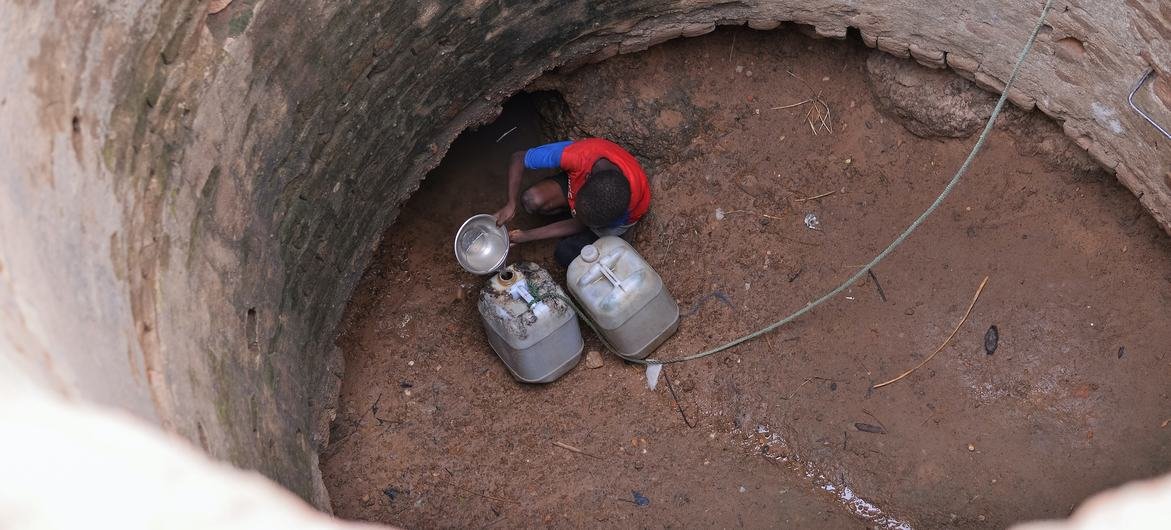Physical Address
304 North Cardinal St.
Dorchester Center, MA 02124
Physical Address
304 North Cardinal St.
Dorchester Center, MA 02124

[
]
The war that erupted last April between the Sudanese Armed Forces (SAF) and the paramilitary Rapid Support Forces (RSF) has triggered political instability, a severe humanitarian emergency and widespread human rights violations.
Over 15,500 fatalities have been reported in some 1,400 violent incidents targeting civilians and there are now almost 9.5 million forcibly displaced in Sudan – 7.3 million internally (IDPs) and 1.9 million in neighbouring countries.
Furthermore, around 18 million people are acutely food insecure and five million are facing starvation. Pregnant women are most at risk and 7,000 new mothers could die in the next few months if they do not get access to food and healthcare.
The situation is particularly worrying in and around El Fasher, the provincial capital of North Darfur. The now-besieged city had a pre-war population of about 1.5 million, as well as sheltering a further 800,000 IDPs.
It is now under relentless bombardment and aerial attacks and atrocities against civilians are being committed along ethnic lines, Martha Pobee, UN Assistant Secretary-General at the Department of Political and Peacebuilding Affairs, told ambassadors at the Security Council.
“Civilians are in the line of fire. Nowhere is safe for them,” she said.
She called for an immediate ceasefire and de-escalation in line with Security Council resolution 2736 adopted last week.
“A ceasefire in El Fasher is needed now to prevent further atrocities, protect critical infrastructure, and alleviate civilian suffering … the parties must heed this call without delay.”

UN Photo/Evan Schneider
A wide view of the UN Security Council meeting on the situation in Sudan.
Ms. Pobee also noted escalation in fighting in other parts of Sudan, including Greater Khartoum, the Kordofan regions and Gezira state, where RSF members reportedly killed 100 civilians in an attack on a village on 5 June.
“Without swift action, Sudan risks becoming engulfed in more ethnic violence and fragment even further,” she warned.
“The risk of a conflict spillover remains high.”
Ambassadors also heard an update from Edem Wosornu, the Director of Operations at the UN Office for the Coordination of Humanitarian Affairs (OCHA), who detailed the impact of the crisis on civilians and on relief efforts.
Though there have been some improvements over the last few weeks in access, such as approvals of visas and travel permits by authorities, aid operations continue to face serious challenges, including attacks against personnel.
“Six aid workers, all Sudanese nationals, have been killed over the last six weeks. This brings the total number of aid workers killed to 24 since the war started,” Ms. Wosornu said.
In addition, the $2.7 billion UN-led humanitarian appeal is “woefully underfunded”, she added, noting that so far only $441 million – 16 per cent – has been received.
“We are in a race against time to avert massive loss of life in this unprecedented protection and food security crisis in Sudan. Every day that we wait for funding to come in, more lives are at risk,” she warned.
Meanwhile the Human Rights Council, in Geneva, which opened its 56th regular session on Tuesday heard from independent investigators probing alleged human rights violations and abuses against civilians, including refugees.
“We have received credible accounts of indiscriminate attacks against civilians and civilian objects, including through airstrikes and shelling in heavily populated residential areas, as well as ground attacks against civilians in their homes and villages,” said Mohamed Chande Othman, Chair of the Independent International Fact-Finding Mission (FFM) for the Sudan.
The FFM is also investigating other attacks against civilians across Sudan, including the mass killings in El Geneina and in Ardamata, of members of the Masalit community, between April and November of last year.
Mr. Othman underscored the human rights and humanitarian situation in Sudan cannot improve without an immediate ceasefire.
Despite repeated appeals by the international community, the fighting persists, he added, stressing that commanders must instruct their forces to abide by international humanitarian law, protect civilians and ensure punishment for violations.
At the same time, warring parties must not attack humanitarian workers, obstruct aid delivery and allow unfettered access to the millions of civilians in need in every part of Sudan.
“The people of the Sudan are crying for help to restore their dignity and rights. They need the support of this [Human Rights] Council,” he concluded.
The three-member independent Fact-Finding Mission was established by the Human Rights Council in October last year for an initial duration of one year.
Its mandate, among other points is to investigate and establish the facts, circumstances and root causes of all alleged human rights and humanitarian law-related violations.
Its Chair together with members Joy Ngozi Ezeilo and Mona Rishmawi, serve in their individual capacities, independent of the United Nations. None of the human rights experts serving are UN staff and they receive no salary.
[